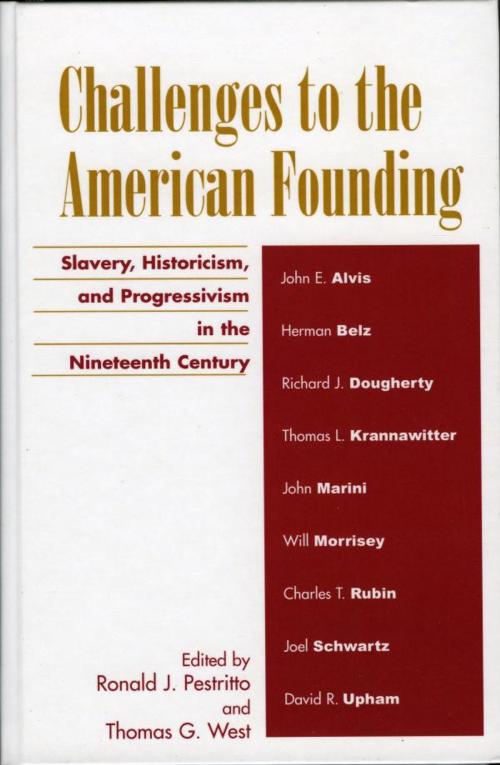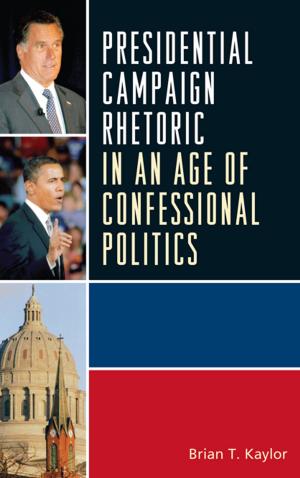Challenges to the American Founding
Slavery, Historicism, and Progressivism in the Nineteenth Century
Nonfiction, Reference & Language, Law, Constitutional| Author: | ISBN: | 9780739152898 | |
| Publisher: | Lexington Books | Publication: | December 28, 2004 |
| Imprint: | Lexington Books | Language: | English |
| Author: | |
| ISBN: | 9780739152898 |
| Publisher: | Lexington Books |
| Publication: | December 28, 2004 |
| Imprint: | Lexington Books |
| Language: | English |
Ronald J. Pestritto's and Thomas G. West's earlier volume The American Founding and the Social Compact addressed the nature of the thought and philosophy of the men who shaped the American founding. In this second volume in a trilogy, Pestritto and West examine the fate of the founders' principles in the nine teeth century, when these principles faced their first great challenges. Support of slavery, culminating in secession and civil war, came from the South; and after the war came positivism, relativism, and radical egalitarianism, which originated in Europe and infiltrated American universities, where intellectuals repudiated the founders' views as historically obsolete and insufficiently concerned with true human liberation. In ten chapters covering major thinkers in nineteenth-century American political thought, contributors discuss the rise and resolution of ideological conflicts in the early generations of the American republic. In Challenges to the American Founding Pestritto and West have compiled an invaluable resource for the roots of the twentieth-century departure in American politics from the political vision of the American founders.
Ronald J. Pestritto's and Thomas G. West's earlier volume The American Founding and the Social Compact addressed the nature of the thought and philosophy of the men who shaped the American founding. In this second volume in a trilogy, Pestritto and West examine the fate of the founders' principles in the nine teeth century, when these principles faced their first great challenges. Support of slavery, culminating in secession and civil war, came from the South; and after the war came positivism, relativism, and radical egalitarianism, which originated in Europe and infiltrated American universities, where intellectuals repudiated the founders' views as historically obsolete and insufficiently concerned with true human liberation. In ten chapters covering major thinkers in nineteenth-century American political thought, contributors discuss the rise and resolution of ideological conflicts in the early generations of the American republic. In Challenges to the American Founding Pestritto and West have compiled an invaluable resource for the roots of the twentieth-century departure in American politics from the political vision of the American founders.















